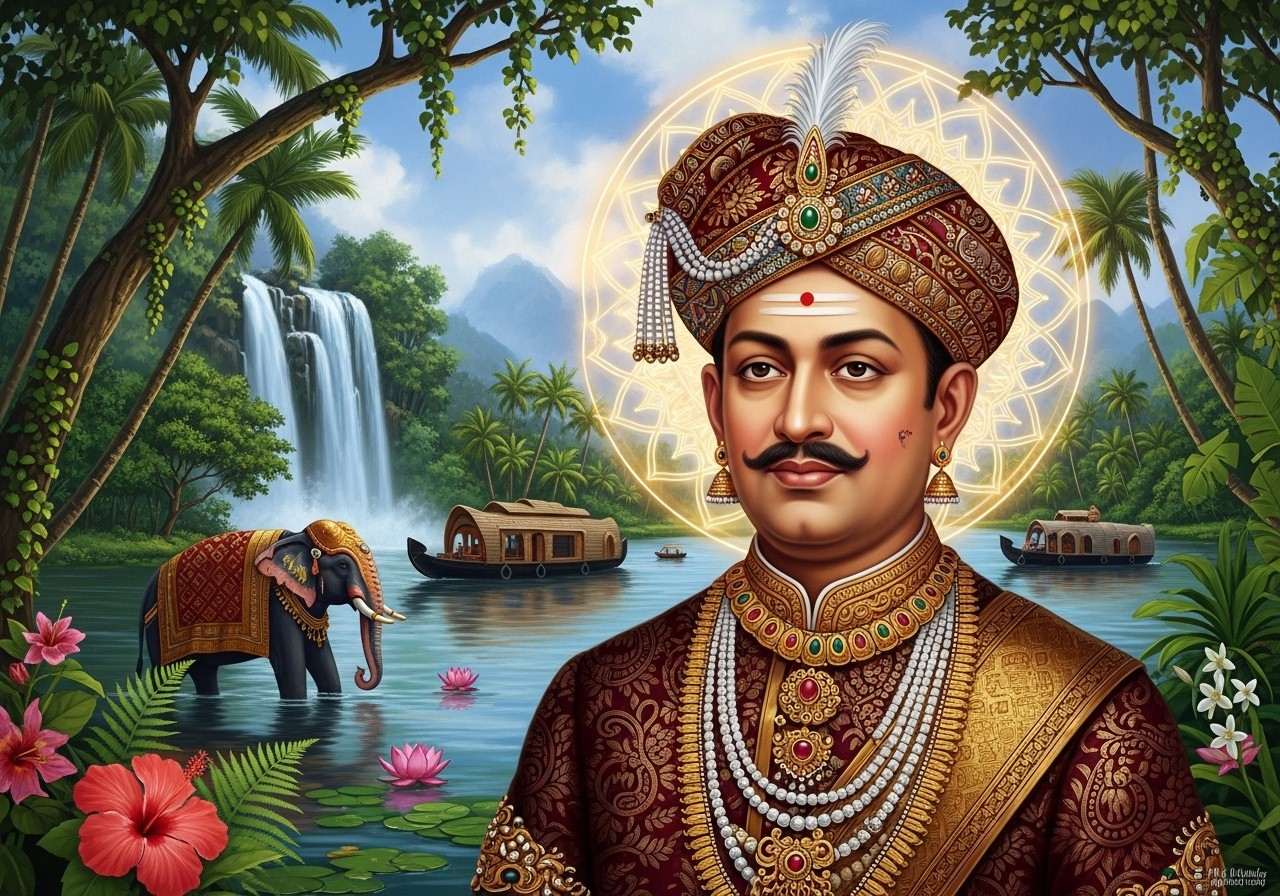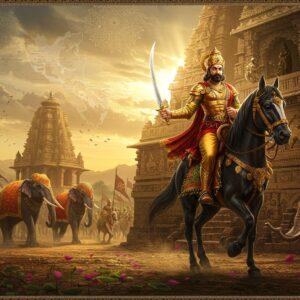
In the rich tapestry of India’s history, some leaders stand out not just for their power, but for their vision. Sree Moolam Thirunal Rama Varma VI, the revered Maharaja of Travancore, was one such soul. His reign, from 1885 to 1924, was not merely a period on a timeline; it was an era of profound transformation that laid the very foundation for the progressive and culturally vibrant Kerala we know and love today. Let’s take a journey back in time to understand the man behind the legend and the incredible legacy he gifted to us.
A King with a Vision for Tomorrow
Born into the royal family of Travancore in 1857, Sree Moolam Thirunal ascended the throne at a time of great change. Unlike many rulers of his time, his perspective was shaped by a blend of deep respect for tradition and an open-mindedness towards modern ideas. This unique outlook became the cornerstone of his governance. He didn’t just rule; he nurtured, innovated, and built a kingdom where progress and heritage could walk hand-in-hand.
Many often wonder what made his reign so impactful. It was his deep-seated belief in social justice and his tireless work to uplift every section of society. He saw a future where education was not a privilege for the few, but a right for all, and where public welfare was the highest duty of a king.
Weaving Progress into the Fabric of Travancore
The Maharaja’s transformative impact can be seen in the sweeping reforms he introduced across Travancore. He was a true pioneer, bringing about changes that were years ahead of their time and fundamentally reshaped the region’s destiny.
- Pioneering Governance and a Voice for the People: Long before democracy became a nationwide call, Sree Moolam Thirunal took a monumental step. In 1888, he established the Travancore Legislative Council, the first of its kind in any Indian princely state. This later evolved into the Sree Moolam Popular Assembly, giving his people a platform and a voice in their own governance, a truly revolutionary idea for the era.
- Building the Foundations of Knowledge and Culture: The Maharaja understood that a society’s true wealth lies in its knowledge. He championed education for all, especially for women, a move that sowed the seeds for Kerala’s future as India’s most literate state. To safeguard our ancient wisdom, he established the Oriental Research Institute and Manuscript Library in 1908 and also set up India’s first state-sponsored Ayurveda College, ensuring our traditional healing practices would thrive for generations.
- Connecting a Kingdom and Fuelling its Economy: A true visionary knows that progress needs pathways. His reign saw remarkable infrastructural growth, including the extension of the railway line to Trivandrum in 1918 and the introduction of bus services. These developments didn’t just connect places; they connected people, boosted agriculture, and opened up new avenues for trade and prosperity. He even established a dedicated agriculture department in 1908 to support the farmers who are the backbone of our land.
- Caring for His People’s Well-being: The health and welfare of his subjects were paramount to Sree Moolam Thirunal. He introduced sanitary departments to improve public hygiene and even rolled out a life insurance system, a testament to his commitment to the long-term security of his people.
The Enduring Legacy: A Gift to Modern Kerala
Why is the legacy of this great Maharaja still so important to us? Because the peace, justice, and progress he championed are woven into the very soul of modern Kerala. His life’s work wasn’t just about building roads or schools; it was about building a progressive society. His reforms in administration, his fight against caste discrimination, and his unwavering support for our traditional art forms like Kathakali have left an indelible mark.
His rule transformed Travancore from a princely state into a beacon of progress, setting a powerful example for the rest of the country. The high value placed on education, healthcare, and social equality in Kerala today can be directly traced back to the seeds planted during his transformative reign.
Honour Tradition in Your Own Home
As we cherish the cultural richness that leaders like Sree Moolam Thirunal worked so hard to preserve, we are reminded of the importance of keeping these traditions alive in our own homes. Continuing our sacred rituals with authenticity and devotion is the best way to honour our heritage.
At poojn.in, we understand this connection deeply. We are here to help you find all the authentic items you need to perform your poojas and celebrate our culture with reverence. We offer a carefully curated selection of high-quality products that bring the purity of tradition right to your doorstep. From complete Traditional Pooja Kits for every occasion to beautifully crafted Brass and Copper Pooja essentials, we ensure you have everything you need for a truly genuine spiritual experience.
Explore our wide range of offerings at www.poojn.in and feel the divine presence in your home.


